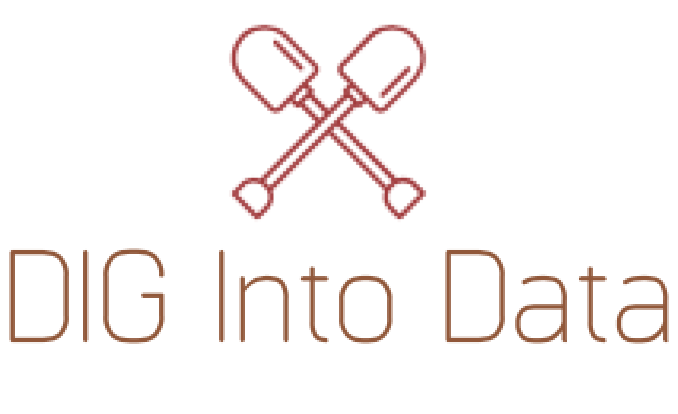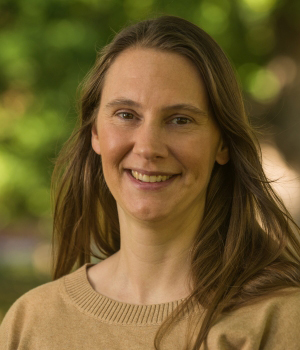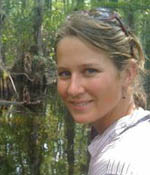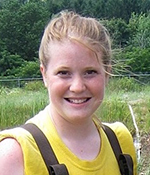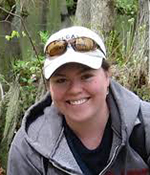DIG into Data FMN (2017)
Webinars
DIG into Data FMN Webinar
Speaker Schedules are also located on this page.
Date & Time
Webinar
Speaker
Thursday, February 2 at 1pm EST
Monday, February 13 at 12pm EST
Dr. Chris Beck is a Professor of Pedagogy at Emory University, Department of Biology. He is interested in scientific studies of laboratory teaching and is working on the effect of inquiry-based learning in laboratory classes on student understanding of the nature of science and the scientific process. He also studies questions at the intersection of behavioral ecology, physiological ecology, and life history evolution.
Wednesday, February 15 at 3pm EST
Assessment - View webinar
Discussion of classroom assessment strategies. Please find two background papers in the QUBES-DIG FMN Assessment Collection (here)
Dr. Melissa Aikens is an Assistant Professor of Biology at the University of New Hampshire, Department of Biological Sciences. She conducts research in undergraduate biology education, which as a field aims to understand the teaching and learning of biology. Her research focuses on understanding how self-beliefs and values related to motivation influence achievement and persistence in undergraduate biology students.
Monday, February 27 at 12pm EST
National Ecological Observatory Network (NEON) - View webinar
In this webinar, I will provide an overview of the NEON project and some of the educational resources available for use. Depending on participant interest, I can also the NEON Data portal to facilitate the creation of educational data sets based on NEON data.
NEON Website
NEON Teaching Module
If you are unable to attend the webinar and would like a self-guided introduction to the NEON project, consider checking out this webpage; repurposed from the NEON introduction for our Data Institude & Workshop participants.
Megan Jones is a Staff Scientist and Science Educator at NEON. Her Ph.D. research at Florida State University focused on fitness consequences of cooperative courtship displays in the neotropical avian family Pipridae (manakins). Megan has a strong background in ecological fieldwork, particularly with birds, in both temperate and tropical ecosystems ranging from Alaskan tundra to the Australian bush to Ecuadorian cloud forest.
Wednesday, March 1 at 3pm EST
Data Nuggets - View webinar
Title: Data Nuggets: Bringing authentic research and data in the classroom to unearth students’ quantitative and inquiry skills
Short Description:
Bringing data into the classroom is important for developing student quantitative reasoning abilities and increasing active engagement. Observations of nature and experimental research often yield datasets that are complicated, messy, and full of variation. Students may be exposed to authentic data for the first time when they perform their own inquiry projects, leaving them underprepared. We argue it is important for students to frequently engage with authentic datasets to build a foundation to properly analyze and interpret their own data from inquiry investigations. Helping students understand variation and messiness in data is a key life skill, and will build their confidence for interacting with complex datasets during their careers or as informed citizens. While the value of bringing real data into the classroom is recognized, classroom implementation can seem overwhelming. For example, how do you help students go from developing their own scientific question to actually finding, utilizing, and interpreting relevant data?
Data Nuggets are targeted classroom activities focused improving quantitative abilities and interest in science for K-16 students. Written by research scientists from a variety of disciplines, Data Nuggets are an innovative approach to connect students with scientists and authentic data, bringing cutting edge science and data into the classroom, and helping students develop a deeper understanding of quantitative reasoning in the context of science. Each Data Nugget includes a dataset from real contemporary research for students to graph, interpret, and use when constructing an explanation.
In this session, participants will learn strategies to best utilize this valuable classroom resource and have the opportunity to discuss developing a Data Nugget of their own.
Reading Material:
- Browse the table of existing Data Nuggets (http://datanuggets.org/search-current-data-nuggets/). Identify 1-2 Data Nuggets that would fit into your current course or departmental teaching objectives. Read the Teacher Guide and brainstorm how you would incorporate the Data Nugget into your course. Would you use any extensions or follow-up activities? Note: Data Nuggets of Level 3 and 4 would be most appropriate for undergraduate classrooms.
- Review the instructions and template for scientists interested in creating a Data Nugget (http://datanuggets.org/making-your-own-nugget/).
Discussion Points:
- Reflect on how you currently use data in the classroom. What have you found to be the most effective and engaging strategies? What characteristics of these activities do you feel makes them more successful?
- What does a quantitatively literate citizen look like? What are your goals for students who leave your classroom as far as quantitative literacy?
Melissa Kjelvik & Elizabeth Schultheis
Dr. Melissa Kjelvik is a postdoctoral researcher and co-founder of Data Nuggets. She completed her Ph.D. in Zoology and EEBB at the Kellogg Biological Station as a member of Gary Mittlbach's Lab. She is interested in how fitness tradeoffs may lead to the maintenance of individual-level biodiversity, particularly in the behaviors of fish.
Dr. Elizabeth Schultheis is a postdoctoral researcher and co-founder of Data Nuggets. She completed her Ph.D. in Plant Biology and EEBB at the Kellogg Biological Station as a member of Jen Lau's Lab. Her dissertation reserach focused on the role of biotic interactions during invasions and how release from enemies could drive the success of invasive plants.
Thursday, March 2 at 1pm EST
Teaching with Public Datasets - View webinar
Please read "Using Large Public Datasets in the Undergraduate Classroom" in the Papers about teaching with data collection
Dr. Tom Langen is a Professor of Biology and Psychology at Clarkson University. His research areas include behavioral ecology - the adaptive function of animal behavior, cognitive ecology - how animals learn about their environment and use the information to make adaptive decisions and conservation science - how ecology can be applied to conserving species and ecosystems, and improving environmental health.
His webinar will discuss how the avalanche of data available from data archives, real-time sensor streams, and citizen science programs provide an opportunity to investigate interesting hypotheses using real data in the classroom. However, there are challenges to adapting such data for classroom use, requiring forethought and experimentation to learn the pedagogical and practical best practices for the classroom. Tom Langen will discuss his experiences with big data in the classroom, including in multiple multi-institutional classroom data activities and activities he has developed.
